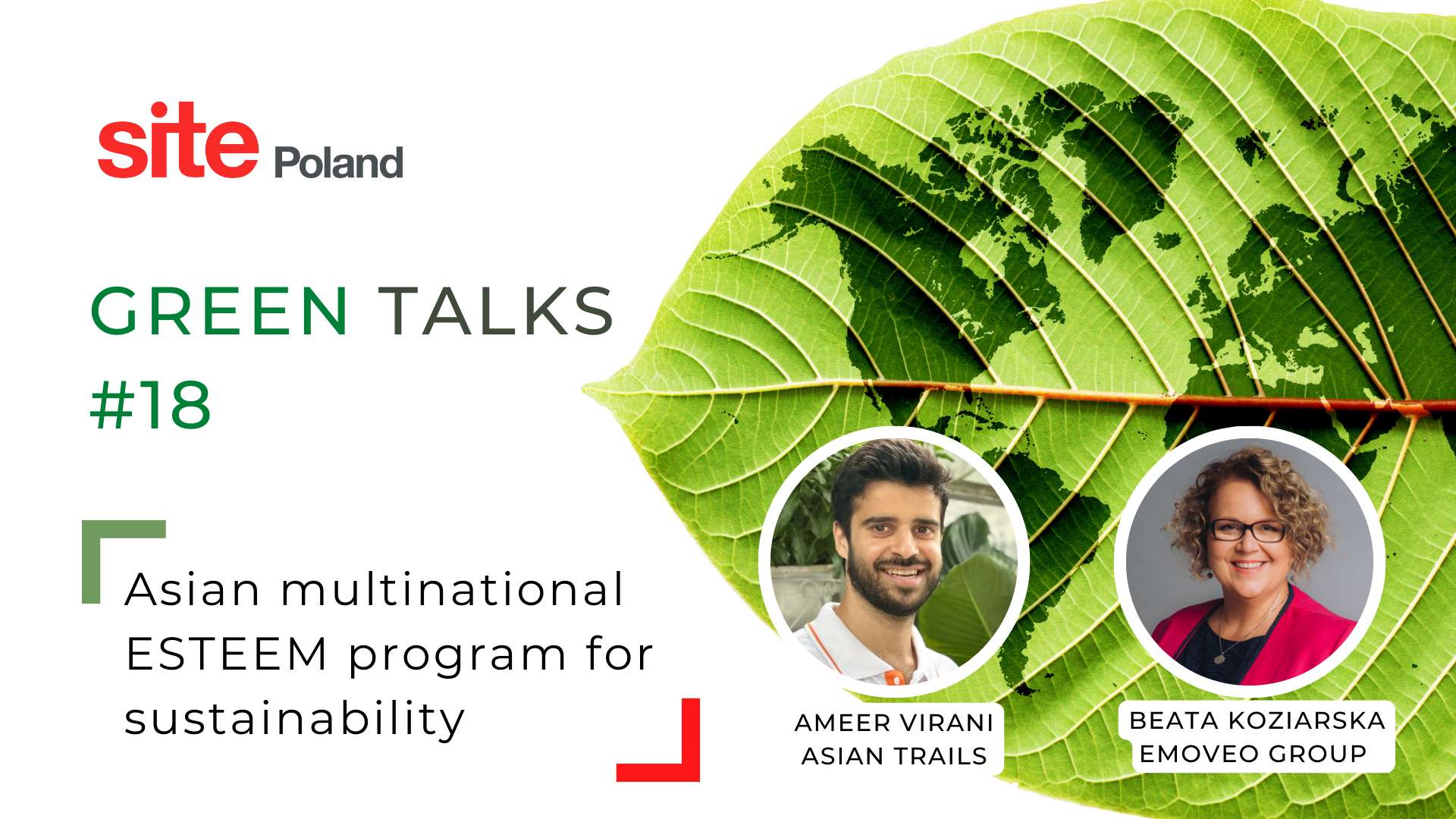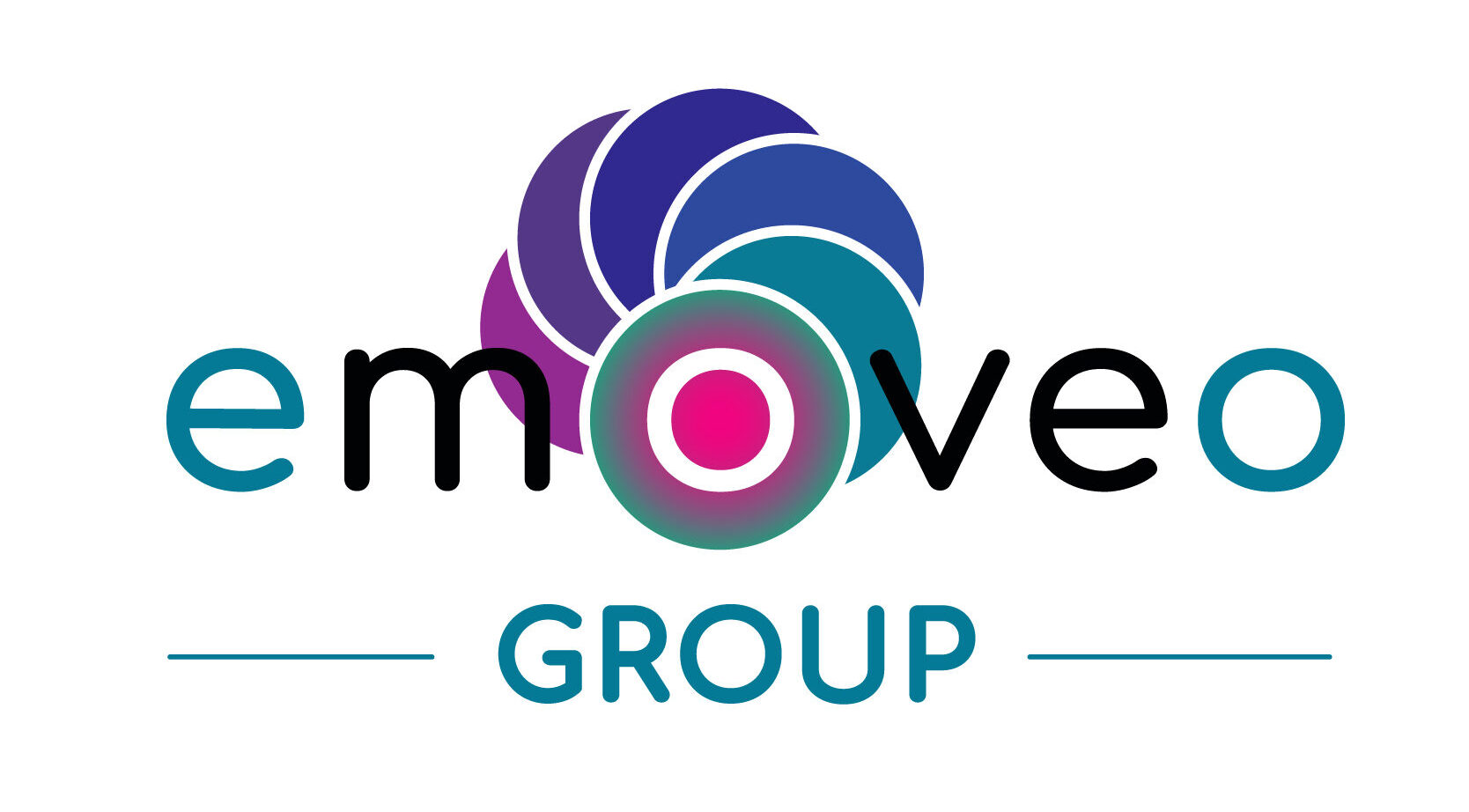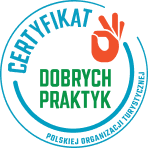GREEN TALKS to cykl autorskich wywiadów na temat zrównoważonego rozwoju w turystyce.
Beata Koziarska prowadzi je wspólnie z Grażyną Grot-Duziak, Prezes SITE Poland. To ich dialog z rynkiem: z klientami, agencjami i dostawcami usług. Rozmawiają z różnymi osobami z kraju i z zagranicy o: ekologii, CSR, ESG, strategiach miast i regionów.
Zachęcamy do zapoznania się ze wszystkimi wywiadami z cyklu GREEN TALKS.
Mr Ameer Virani, Group Sustainability Manager, Asian Trails
Since completing a Masters in Responsible Tourism Management in the UK in 2013, he has been working in sustainable tourism development for 10 years. He has supported NGOs to implement projects supporting local communities, social enterprises to use tourism as a tool for development, launched his own tourism-related charity called Share The Wonder and now with Asian Trails he is working towards making sustainable travel more mainstream.

Questioner: BEATA KOZIARSKA, EMOVEO GROUP, SITE POLAND Member
Beata Koziarska:
As Asian Trails, destination management company, you are committed to the idea of a responsible and sustainable travel program that protects the environment and helps bring benefits to local communities.
How long have you been implementing this idea, and are all your branches in Cambodia, China, Hong Kong, Indonesia, Laos, Malaysia, Myanmar, Singapore, Thailand and Vietnam, actively participating in this program?
Ameer Varani: We started working towards having a stronger focus on sustainable travel around 5 years. Since then, we have spent a lot of time building foundations and are now shifting our focus towards actual implementation by encouraging our clients to include more sustainable travel products in their travel itineraries.
All our branches are involved but the availability of sustainable travel products obviously differs by country.
What is the acronym of the ESTEEM program, the principles of which you implement in your sustainable operations?
E = Eat locally, S = Stay eco-friendly, T = Transport alternatively, E = Experience meaningfully, E = Empower viably, M = Make a difference.
How do you implement this program? What are the main areas of your action and influence on your customers in terms of responsible travel?
Our teams aim to incorporate the six ESTEEM principles as much as possible into our travel products in order to maximize their positive impacts and minimize their negative impacts. The main principles we are really trying to have an impact on are ‘Eat locally’ and ‘Experience meaningfully’ as this is where we can have the most influence. For example, by encouraging travellers to eat at small, local restaurants serving local dishes using locally-sourced ingredients and taking part in experiences that support individual service providers and small, local businesses.
We also focus on the other four principles but to a lesser extent, for various reasons. For example, we do not yet have a robust system for ‘Stay eco-friendly’ to evaluate the sustainability of our accommodation partners (this is a work in progress). Also, sustainable transport options between destinations are not widely available in the countries we operate in so making progress on ‘Transport alternatively’ is challenging.
How are your sustainable program offers created?
We do not create sustainable travel programs per se. Instead, what we do is look at existing travel programs and identify opportunities to make them more sustainable. The idea is to make incremental positive changes rather than aiming for 100% too soon.
This process is conducted on a tailored basis. We first look at the destinations travellers want to visit and then refer to our brand new Explore Guides to highlight sustainable travel options available to visitors to those destinations. These Explore Guides showcase high quality and positive impact restaurants, accommodation, transportation, experiences and activities in all our most popular destinations.
Do these activities apply only to individual tourist programs or to incentive travel as well?
The products outlined in the Explore Guides primarily target tourist programs, however there are several products also relevant to incentive travel. An additional tool we are currently developing for all countries is a guide to CSR activities that incentive groups can take part in to give back to local communities and nature.
Do all the countries you operate in have similar policies on sustainable travel, supply chain, child protection, animal welfare, support of local communities?
If not, what are the challenges of responsible travel related to cultural, economic, political differences in Asian countries?
Our policies are consistent across all countries, however the extent of implementation sometimes differs by country. For example, Thailand has a lot of animal activities that go against our policy and some clients request to visit these sites. Our job in these situation is to inform the client that we do not promote such sites and why, and then provide more sustainable alternatives we are aware of.
How are the attitudes of incentive travel organizers changing last years regarding programs organized in Asia, what do they currently expect?
From a sustainability perspective, there is a slight increase in demand to take part in CSR activities during incentive programs. However, these are just one-off activities and we would love to see incentive travel organizers also taking advantage of our new Explore Guides to include more sustainable products within their itineraries on the whole, aside from just CSR activities.
Do the sustainable solutions and experiences for tourists that you promote in your offers necessarily mean higher costs? If so, what is this related to?
Not at all. Travelling more sustainably does not have to be more expensive by any means. For example, eating out at a small, local restaurant is the most sustainable way to eat out. This is cheaper than going to a big, touristy restaurant. In the same light, electric vehicles are currently the same price as motorized vehicles in Bangkok and there is plenty of availability so we are trying to encourage our FITs to shift to the more eco-friendly option.
From a purely economic point of view, sustainable travel is about making sure that tourist spend goes towards local business owners and not regional or international ones. This is all about understanding our supply chain partners well and working with those that keep the money local. Supporting local businesses does not cost more, it just takes a bit more time than taking the easy option of immediately resorting to working with regional and international companies. This is where our research and supplier knowledge is important.
Do you measure the results of your action for responsible travel, do you prepare a sustainable report? What is the impact so far?
We do publish an annual sustainability report, however this is just a general summary of our actions. We need to improve in terms of actually measuring our progress and impact in a quantitative way. This is an area we are focusing on in 2024.
Is it easy to be a Sustainable Manager in such a multicultural and multinational Asia Trails team? Is it easy to encourage everyone to work together for this common goal?
No, I think anyone working across nine countries will tell you it is challenging as each country has a very different context. With specific regard to sustainability, the challenge is understanding what the different contexts are and taking action accordingly. We can not expect to implement the same initiatives to the exact same extent in all destinations. We have to tailor our sustainability approach. This is of course challenging but is also part of the fun of my job because I get to learn about our different destinations in detail. Our country teams play a major supporting role in this.



